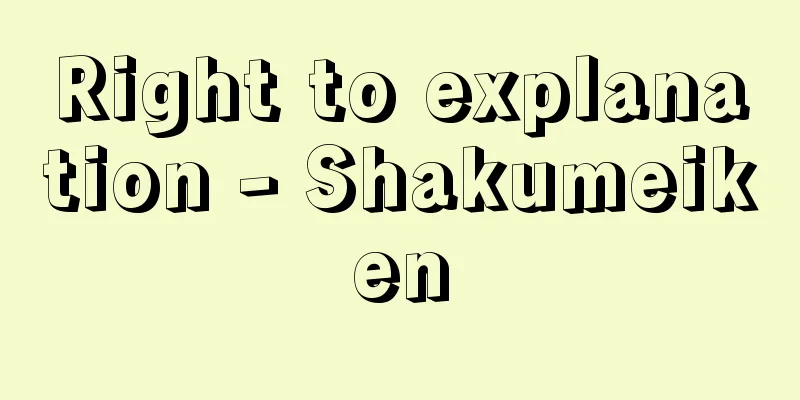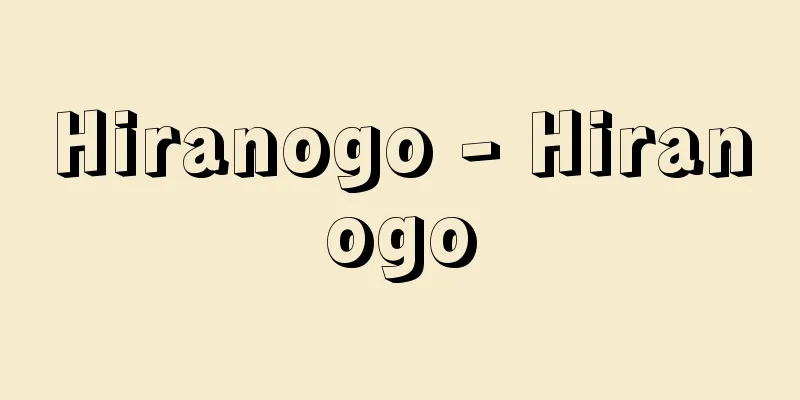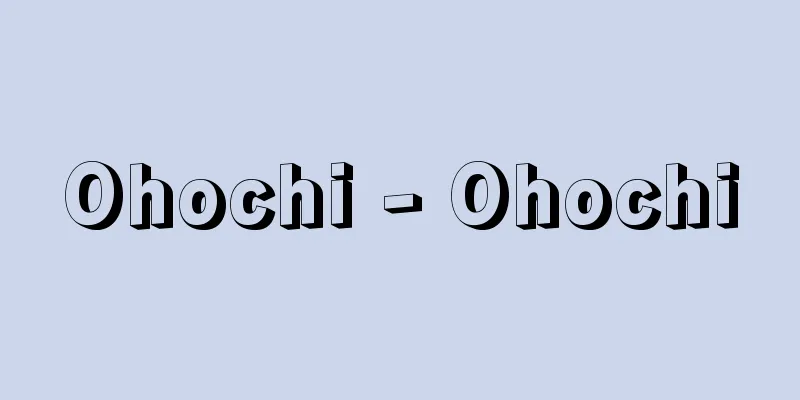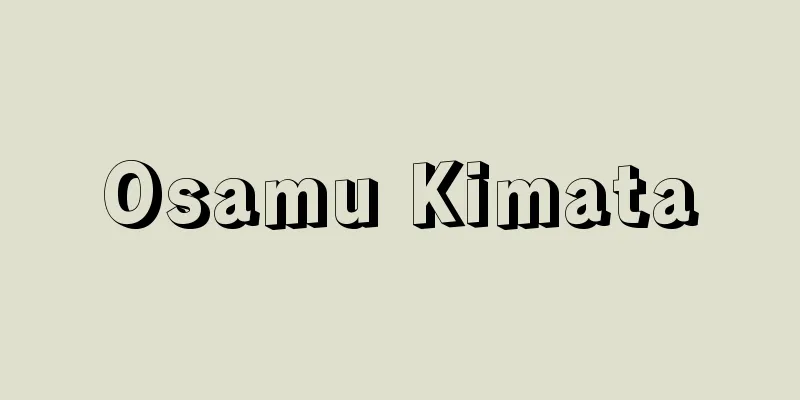Right to explanation - Shakumeiken

|
It refers to the power of the court to ask questions about legal and factual matters and encourage the parties to make statements or provide evidence in order to clarify the truth of the case and ensure a fair trial (Article 149 of the Civil Procedure Code; the right to provide explanations in criminal trials is Article 208 of the Criminal Procedure Rules). In this way, the power of the court to clarify the facts and litigation relationships with the parties as the litigation progresses is one of the powers of directing the litigation, and is called the right or duty to provide explanations. Under the orality system, the clarification of a case is originally the power and responsibility of the parties, but in order to guarantee the principle of equality between the parties and to conduct a fair and impartial trial, there are cases in which the cooperation of the court is required in obtaining evidentiary materials and facts. In other words, since it cannot be expected that both parties will be on an equal footing and will accurately submit sufficient litigation materials in an actual lawsuit, the court may require the parties to explain themselves in order to clarify any unclear or inconsistent points in their petitions or methods of attack and defense, or may warn the parties if they do not present the necessary evidence due to ignorance or misunderstanding of the litigation procedure. The right to explanation is exercised mainly by the presiding judge or associate judge during oral argument or pretrial proceedings by asking questions (Civil Procedure Act, Articles 149 and 170), but the court may also issue explanations in preparation for or as a supplement (Civil Procedure Act, Article 151). The right to explanation is exercised to "make the winner win" and to promote the proceedings, and originally originates from the principle of official authority and limits oratoryism, but it is said to be "not an enemy of oratoryism in the sense that it weakens it, but an ally in the sense that it compensates for its shortcomings." [Takeyoshi Uchida and Tetsuo Kato] [References] | | | | |Source: Shogakukan Encyclopedia Nipponica About Encyclopedia Nipponica Information | Legend |
|
裁判所が、事件の真相を明瞭(めいりょう)にして公正な裁判ができるように、法律上および事実上の事項につき質問をし、当事者に陳述、あるいは立証を促す権限をいう(民事訴訟法149条、なお刑事裁判における釈明権については刑事訴訟規則208条)。このように、裁判所が訴訟の経過に応じて、事実および訴訟関係を当事者とともに明確にする権能は、訴訟指揮権の一つであり、釈明権あるいは釈明義務といわれる。事案の解明は、元来、弁論主義のもとでは当事者の権能かつ責任とされているが、当事者平等の原則の保障と適正公平な審理のために、証明材料や事実の入手においても、裁判所の協力が必要とされる場合がある。つまり、実際の訴訟においては、当事者双方が平等の立場でしかも十分な訴訟資料を正確に提出することをかならずしも期待できないため、裁判所は、当事者の申立てや攻撃防御方法などに不明確な点や矛盾のある場合に、これをはっきりさせるため当事者に弁明させたり、訴訟手続についての無知や誤解のために必要な証拠の申し出をしない場合に、その点を注意することなどができるものとしている。釈明権は、主として口頭弁論または弁論準備手続において、裁判長または陪席裁判官が発問して行使されるが(民事訴訟法149条・170条)、ほかに、その準備または補充として裁判所の釈明処分もある(同法151条)。釈明権は「勝つべき者を勝たせる」ため、および審理を促進させるため行使するもので、本来、職権主義に由来し弁論主義を制限するものであるが、「弁論主義を弱体化する意味においてその敵ではなく、弁論主義の欠点を補う意味でその味方である」といわれる。 [内田武吉・加藤哲夫] [参照項目] | | | | |出典 小学館 日本大百科全書(ニッポニカ)日本大百科全書(ニッポニカ)について 情報 | 凡例 |
>>: Shakumyou (English name) Shi-ming
Recommend
Long-tailed Flycatcher - Long-tailed Flycatcher
…The male of the red flycatcher Pyrocephalus rubi...
Coefficient of parentage
…Here, F I and F J are the inbreeding coefficient...
Kilo (person's name) - Kiro
According to Cheiro (real name Louis Hamon, 1866-...
Churriguera, JB
…An architectural style of the late Spanish Baroq...
Ground-seeding aquaculture (ground-seeding aquaculture)
This is an extensive aquaculture method in which y...
Kamiya Kazue
...He was a wealthy merchant in Hakata from the A...
Tai Yai (English spelling)
…In Yunnan Province, the Xishuangbanna Dai Autono...
Yanagawa Kengyo
[raw]? [Died] July 11, 1680 A blind musician in th...
Calculation of the Buddhist scriptures - Calculation of the Buddhist scriptures
This is a book on mathematical methodology written...
Aerts
Finnish architect. Born in Kuortane. In contrast t...
Ayuhi Sho - Ayuhi Sho
A grammar book. 5 volumes, 6 books. Written by Fuj...
Introversion
...A term used by Jung along with "extravers...
Grus antigone (English spelling)
…[Hiroshi Aramata]. … *Some of the terminology th...
"African customs and conflicts" - African customs and conflicts
For example, Elman R. Service, in his book Primit...
Hinterland
The word "hinterland" is used to descri...


![Idaho [State] - Idaho](/upload/images/67cacf0d6c444.webp)






